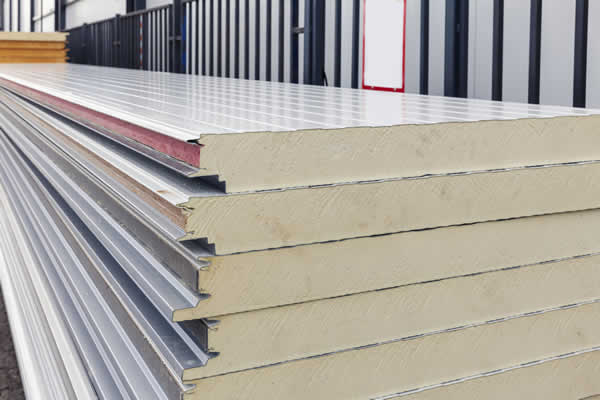There are various ways to make your home energy efficient, ranging from adjusting your daily habits to home improvements. Regardless of the time of the year, implementing energy-efficient improvements in your home is a good move. Aside from saving money on your monthly utility bills, you can effectively make your home comfortable all year round.

If you want to save on your monthly utility bill and do your part in protecting the environment, here are several energy-saving tips to try for your home.
- Adopt Energy-Efficient Habits
- One way to minimize the energy consumption in your home is to start with your daily habits. It can be as simple as switching off lights or appliances you don't use. You can also perform some household tasks manually to minimize the use of energy-intensive appliances. These activities include hang-drying your clothes or washing dishes by hand.
- Another adjustment you can make to ensure lesser energy consumption is switching the heat on your thermostat during the winter and using the air conditioning unit less in summer. A ceiling fan is an investment worth considering when you want to inhabit an energy-efficient lifestyle. Utilizing a fan consumes less energy while maintaining a comfortable environment in any space.
- During the summer months, set your fan to turn counterclockwise and adjust your thermostat to a few degrees higher to save on your cooling bills. During the winter, switch the blades to spin clockwise to save on your heating bills.
- Remember that the heating and cooling costs significantly contribute to almost half of an average utility bill.
- Other energy-efficient habits to consider are the following:
- Try to use natural light if possible.
- Unplug devices when not in use. Avoid leaving them on standby and unplug them to save on your utility bill.
- Switch off lights when not in use.
- Maintain Good Insulation
- When you have a well-insulated home, it makes it energy efficient. Effective insulation slows the rate of how heat moves out of your home during the winter or into your house during summer. Therefore, requiring less energy to heat or cool your home. As a result, you can save more on your monthly utility bills.
- One way to make your home energy efficient is to improve your current insulation. The better insulated the walls, attic, and floor are, the less energy the cooling and heating systems use to provide a comfortable environment in your home.
- If you're planning to improve the insulation in your home, you might want to consider working with a professional offering high-quality insulating material.
- Invest In A Smart Thermostat
- A programmable thermostat automatically turns off or adjusts the heating and cooling system when you're away. If you install one in your home, it can help limit energy consumption.
- Today, you can find a selection of programmable thermostats in various models. Some extra features might include indicators that signal when to replace the air filters or Heating, Ventilation, or Air Conditioning (HVAC) system issues.
- Update The HVAC System
- When your HVAC system is getting old, it's one of the culprits for your skyrocketing utility bills. In such cases, it might be time to switch to a new HVAC system to help save on your energy bills.
- When selecting a new HVAC system for your home, make sure you'll choose one with a high rating from Energy Star. Also, the new unit must be a suitable size for your home, which your contractor can determine with a heat-loss calculation.
- Once your brand-new HVAC system is in place, make sure to schedule yearly maintenance so it operates seamlessly over the years. Additionally, you may consider using filters with a special type of coating to improve the air quality in your home.
- Seal Air Leaks Around The House
- Sealing air leaks in various spots around your home is one of the ways to minimize your cooling and heating expenses every month. Some of the usual sources of air leaks in your home are the windows, vents, and doors. One way to prevent leaks is to deal with any cracks or openings.
- When sealing air leaks between the wall and window frame, caulking is the best option. As for cracks between movable objects such as doors and windows, you can apply weather stripping. Both caulking and weather stripping are simple measures to help make your home energy efficient.
- Improve The Energy Efficiency Of Your Appliances
- When it's time to replace your appliances, it might be best to choose those with a high Energy Star rating. During the selection process, you should also think about the design of the appliances. For example, you could purchase a front-loading washing machine that dries clothes faster and cuts down water consumption.
- Also, refrigerators and dryers consume a large amount of electricity. If you replace them with energy-efficient models, it can help reduce electricity consumption, effectively decreasing your utility bills. Generally, providing regular maintenance and replacing appliances every few years will ease the burden on your electricity consumption.
- Aside from buying energy-efficient appliances, you can also find ways to maximize the efficiency of your current ones at home, such as the refrigerator. If you want it to function efficiently, provide it with adequate space on all sides to improve the airflow. Additionally, turn it off and thoroughly clean the cooling coil at least once a year.

- Replace Old Windows
- Having the right windows will effectively hold cool air during the summer and warm air in the winter. Once you decide to replace your old windows, it can be a significant investment but could provide long-term savings over time.
- If you have single-pane windows, it might be time to replace them. You could do so with an energy-efficient model or consider adding shades or tinting film.
- When you have single-glazed windows, they cannot provide adequate insulation to your home. If you have the budget, consider replacing them with double glazed windows which effectively insulate heat and noise.
- Utilize Window Treatments
- The addition of window treatments such as curtains, draperies, and blinds can make a significant difference to an energy-efficient home.
- A certain percentage of heat loss occurs via the windows. With this in mind, you should select window treatments that can effectively control the temperature of the interior. Depending on the window treatments you have in your home, close them during sunny days to keep the interior temperature cooler and minimize the work of your air conditioning unit. During the cool months, open the shades to allow the sun to warm up your home.
- Make Changes To The Outdoors
- There are also outdoor changes you should consider. If you want to allow sunlight to flow naturally into your home, try to get rid of any obstructions that hinder the light source.
- When you have several trees or hedges that make your home gloomy, you might want to consider artificial lighting more than necessary. In such cases, it might be time to give your yard a lift by trimming overgrowing tree branches to allow light to reach your home.
- In case your home is constantly exposed to the elements, especially the sun, consider planting trees. When you position them appropriately, trees can provide your home with protection against the sun's rays. Also, these rays are responsible for warming up your home during summer. As the trees start to shed their leaves during the winter, it'll allow light to pass through to help warm up your home naturally.
- Replace Your Light Bulbs
- An easy yet practical way to boost your home's energy efficiency is to replace your light bulbs. If you have incandescent lights, it might be time to replace them with efficient options.
- Also, it might be time to switch to Compact Fluorescent Lamps (CFLs) or Light-Emitting Diode (LED) bulbs. These two options boast a longer lifespan and can consume less energy than incandescent bulbs.
- Go For A Tankless Water Heater
- The water heater is one of the primary consumers of energy. When you want to make your home energy-efficient, it might be time to consider switching to a tankless version. This type is more energy-efficient and likely to last longer than conventional storage water heaters.
- Be Conscious With Water Consumption
- Implementing small changes in your water consumption around the house can help save on your utility bills.
- Switch off the faucet when you're shaving or brushing your teeth. Avoid allowing the water to flow down the drain continuously. Bathing is another activity that consumes large amounts of water, unlike showering, which uses less.
- It might be best to avoid running half loads of laundry in your washer. A good suggestion would be to wait for a full load to wash more clothes at once. Thus, taking this action helps conserve water. Additionally, consider installing low-flow showerheads to help further minimize water usage.
Conclusion
Making your home energy efficient is the best way to save on your monthly utility bills while also contributing to the protection of the environment. If you want to reduce the energy consumption in your home, you must make changes in your daily habits and necessary improvements around your home. Following the list discussed above, could ensure a positive impact in the long run.
